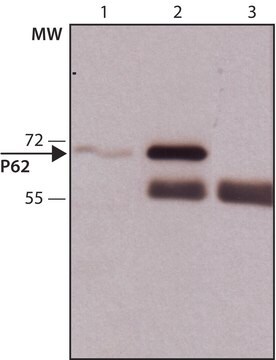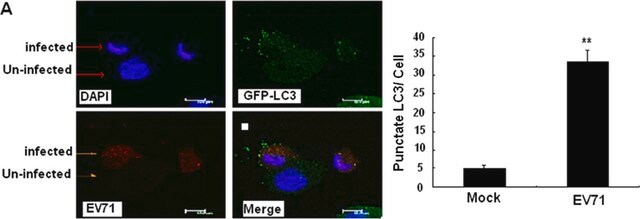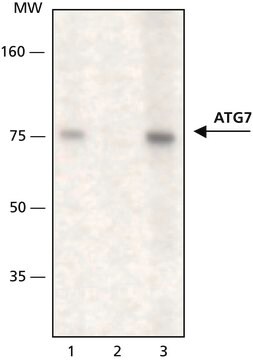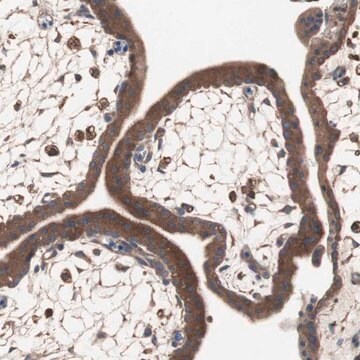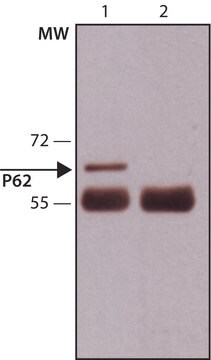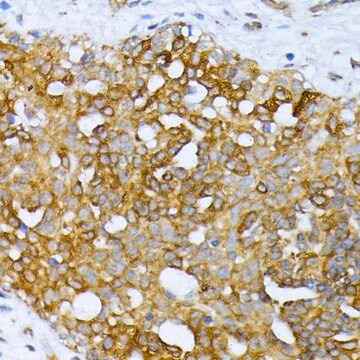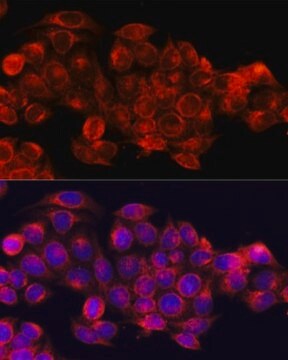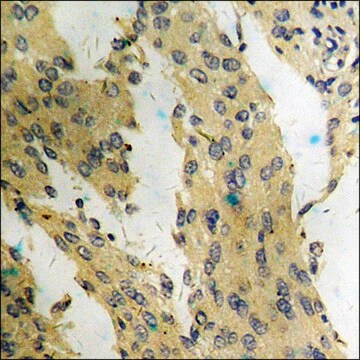SAB4200304
Anti-Atg7 antibody, Mouse monoclonal
clone ATG7-13, purified from hybridoma cell culture
Synonym(s):
Anti-ATG12-activating enzyme E1 ATG7, Anti-Autophagy related 7 homolog (S. cerevisiae), APG7-like, APG7L, GSA7, APG7 autophagy 7-like, Anti-Autophagy-related protein 7, Anti-HAGP7, Anti-Ubiquitin activating enzyme E1-like protein, Anti-Ubiquitin-activating enzyme E1-like protein, Anti-Ubiquitin-like modifier-activating enzyme ATG7
About This Item
Recommended Products
biological source
mouse
conjugate
unconjugated
antibody form
purified from hybridoma cell culture
antibody product type
primary antibodies
clone
ATG7-13, monoclonal
form
buffered aqueous solution
mol wt
antigen ~75 kDa
species reactivity
human, mouse, rat
concentration
~1.0 mg/mL
technique(s)
immunoprecipitation (IP): suitable
western blot: 2-4 μg/mL using whole extracts of HEK-293T or U87 cells
isotype
IgG1
UniProt accession no.
shipped in
dry ice
storage temp.
−20°C
target post-translational modification
unmodified
Gene Information
human ... ATG7(10533)
mouse ... Atg7(74244)
rat ... Atg7(312647)
Related Categories
General description
Immunogen
Application
- immunofluorescence
- immunohistochemistry (IHC)
- western blotting
- immunoprecipitation
Biochem/physiol Actions
Physical form
Disclaimer
Not finding the right product?
Try our Product Selector Tool.
recommended
Storage Class Code
10 - Combustible liquids
Flash Point(F)
Not applicable
Flash Point(C)
Not applicable
Certificates of Analysis (COA)
Search for Certificates of Analysis (COA) by entering the products Lot/Batch Number. Lot and Batch Numbers can be found on a product’s label following the words ‘Lot’ or ‘Batch’.
Already Own This Product?
Find documentation for the products that you have recently purchased in the Document Library.
Our team of scientists has experience in all areas of research including Life Science, Material Science, Chemical Synthesis, Chromatography, Analytical and many others.
Contact Technical Service